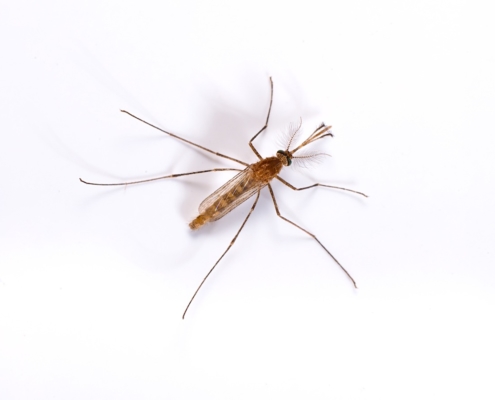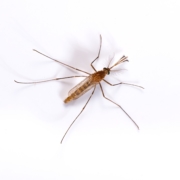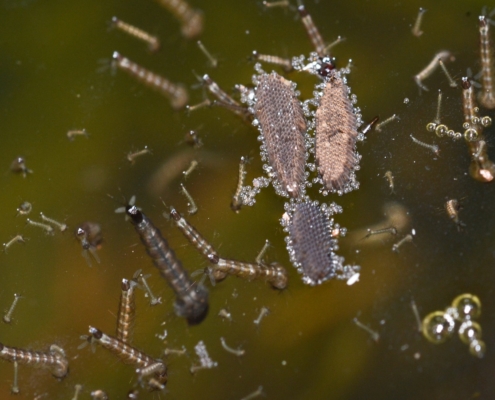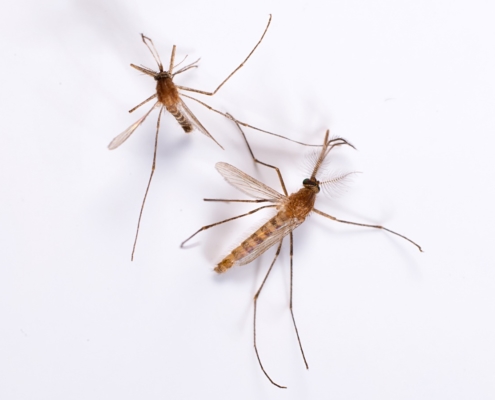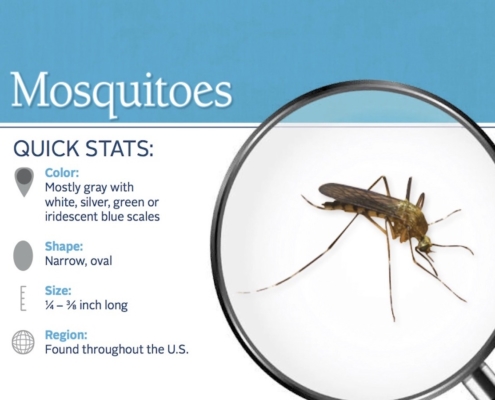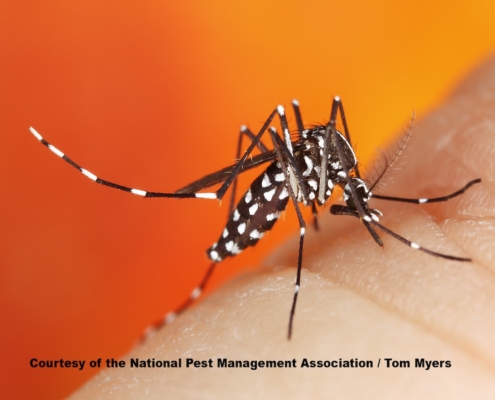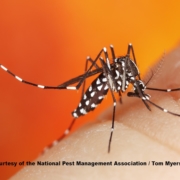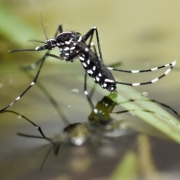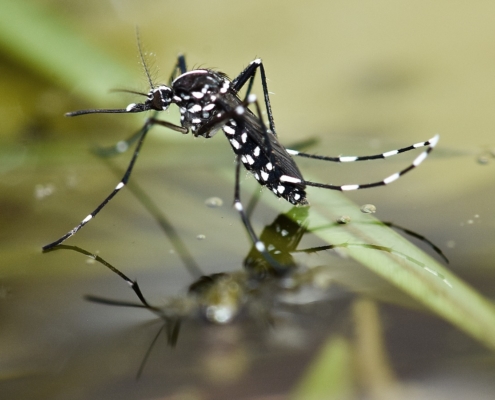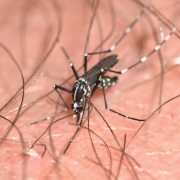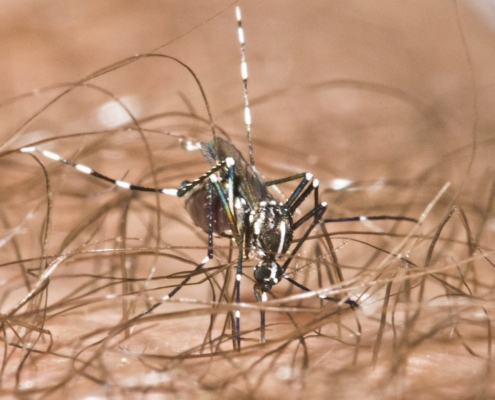Types of Mosquitoes
Mosquito Biology
While primarily a nuisance, mosquitoes represent a serious public health threat because of their ability to transmit life-threatening diseases such as dengue, yellow fever, chikungunya and West Nile virus. According to the World Health Organization, there are more than one million deaths a year attributable to the diseases carried by mosquitoes. That makes them the deadliest animal on the planet.
Read Mosquito Biology Info Here
Culex Mosquitoes
One of the best-known summer pests, mosquitoes breed in stagnant water or soft soil. There are about 170 different kinds of mosquito species in North America alone.
Elite Pest Management, LLC-Bed Bug and Termite Services
Color
Varies; mostly gray with white, silver, green, or iridescent blue scales
| Legs | 6 |
|---|---|
| Antennae | Yes |
| Region | Found throughout the U.S. |
Shape
Narrow, oval
Size
1/4 – 3/8 inch long
Habits
Mosquitoes hunt for food by detecting body heat and the carbon dioxide humans exhale. However, only female mosquitoes suck our blood. Male mosquitoes feed on plant nectars.
Habitat
Mosquitoes can breed in any form of stagnant water, including ponds, marshes, floodwaters, storm drains, old tires and water in tree holes.
Threats
Mosquitoes are vectors of numerous diseases including malaria, yellow fever, dengue fever, encephalitis and West Nile virus – a disease that has become a serious concern in the U.S. in recent years. Signs of West Nile virus include common flu-like symptoms. In extreme cases, symptoms include high fever, head and body aches, worsening weakness, confusion and even coma. Practicing mosquito management when outdoors can help reduce the risk of disease from bites.
Culex Mosquito Prevention
Mosquito control begins with eliminating areas of standing water around the property such as flowerpots, birdbaths, grill covers and baby pools. Homeowners should also screen all window and doors, repairing even the smallest hole. Another mosquito management tip is to minimize outside activity between dusk and dawn when mosquitoes are most active. For stronger mosquito treatment, people should use an insect repellent containing DEET on exposed skin and wear long pants and sleeves to prevent mosquito bites when outdoors.
Asian Tiger Mosquitoes (Aedes albopictus)
Brown-banded cockroaches get their name from the two lighter bands they have across their dark brownish bodies. Male brown-banded roaches have full wings that reach beyond the tip of their pointed abdomens, but females have underdeveloped wings that prohibit them from flying. The brown-banded cockroach can live for about 206 days.
Elite Pest Management, LLC-Bed Bug and Termite Services
Color
Brown, with pronounced banding across wings
| Legs | 6 |
|---|---|
| Antennae | Yes |
| Region | Found throughout the U.S. |
Shape
Oval
Size
1/2 inch long
Habits
Like other mosquito species, only females require a blood meal to produce eggs. Asian tiger mosquitoes typically feed during the daylight hours when they are most active. The males do not bite and primarily feed on plant nectar.
Habitat
In warm regions, Asian tiger mosquitoes are active year-round. However, they are known to overwinter in temperate climates. The females lay their eggs inside items that can hold stagnant water, such as tires, flowerpots, birdbaths and clogged drains.
Threats
The bite from a female Asian tiger mosquito can leave an itchy, red bump on the skin. But, the real threat posed by this pest is its ability to transmit numerous diseases including West Nile virus, encephalitis and dengue fever.
The Asian tiger mosquito is also the primary vector for Chikungunya, a virus similar to dengue fever. The disease originated in southeast Africa and was first described in Tanzania in 1952. It has since spread throughout the Americas, the Caribbean islands, and most recently in the United States.
Asian Tiger Mosquito Prevention
The most effective way to prevent contact with Asian tiger mosquitoes is to eliminate areas of standing water around the home such as baby pools, flowerpots and birdbaths. Homeowners should also screen all windows and doors. Those who spend time outdoors should wear long pants and sleeves, and use an insect repellent containing 20 percent DEET.


